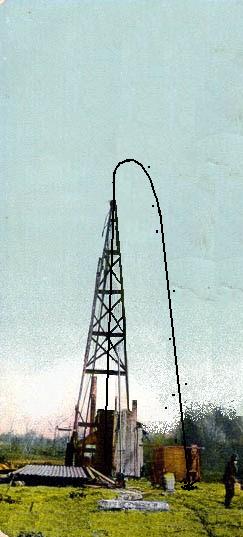
Again, oil will profoundly change the world we live in, and in ways we can never dreamed of . . . but this time it’s because there isn’t enough, with the Millennials and Generation-Z being affected the most.
James Lyman BSAE, BSEE, MSSM
Have you noticed how suddenly, all the major automakers are going bananas to build different electric cars? For years, it’s been a cliche that the big automakers would stop at nothing to keep electric cars out of the market, yet now they’re falling all over each other to design, build and start selling ‘electric wheels’. Why’s that? And why would that be important? Since the first oil crisis in 1973, predictions of eventual oil shortfalls have been ever present, most people just poo-pooing them away figuring it was all just some plot to hike gas prices higher. This sudden profound change in automakers attitude towards electric cars says they have accepted that gas shortages will be the norm in the relatively near future.
For example, the Ford Motor Company plans to invest more than $1.45 billion dollars in two of its manufacturing facilities in Detroit, to make electric autos, autonomous and sports-utility vehicles. The new manufacturing will add 3,000 jobs, with Ford saying it will invest $11 billion dollars to make forty new hybrid and fully electric vehicles by 2022. That kind of money and time frame tells us Ford is really worried about the future of conventional gas powered automobiles.
There are a number of reports on the internet, many which forecast profound shortages by 2030. Go to my website www.peopleobsolete.com and on the top menu bar, click on the |Links|, which brings up a list of almost two dozen websites with reports of forecast for pending oil shortages. One of those reports (many are pdf downloadable) is by BP (British Petroleum) who expects problems with oil by 2030. These are not opinions, rather they are the results of mathematical modeling of the world oil supply. These modeling methods were pioneered by Mr. M. King Hubbert, a geologist with Shell Oil Company, who in 1956 correctly predicted that America’s peak oil production would occur around 1969. That happened in 1970, putting an end to America’s independence of foreign oil, as was apparent in 1973 with our first oil crisis. His techniques were carried on by others who predicted the peak for world oil production would occur between 2000 and 2010, and it did in 2007 sending shockwaves through economies, collapsing major banks, that resulted in a world wide recession starting in 2008. Read “End of Cheap Oil” by Colin J. Campbell and Jean H. LaherrPre in the March 1998 issue of Scientific American pp78-83.
Again, on the top menu of peopleobsolete.com, you can click on |Oil Problem and Hubbert’s peak| to go to a section of web pages about the specifics of the oil problem, or from the ‘List’ page click on |Nut Shell| at the top. There are other modeling techniques now in addition to Hubbert’s, and they say about the same thing. In the not too distance future, getting oil is going to be a serious problem for the industrial nations of the world.
There are other indications that the premise of ‘future oil shortages’ is being accepted. Saudi Arabia has just opened up its state owned Aramco, the giant oil company, with a public offering of stock. Saudi Arabia is intent on diversifying its economy so it is less dependent on its dwindling reserves of oil. Another strong sign is China, and while a behemoth nation, it’s still in the process of industrialization but has almost no oil. Realizing that oil is what keeps it from being another third world nation, China has declared its intention to be the dominate world power by 2050, thereby ensure her access to oil. This is evident by China’s massive expansion of her military, by the building of a ‘blue water’ navy to counter America’s naval power, and by the taking over and militarizing the islands in the South China sea between the Phillippines and Vietnam. There is expectations of oil beneath the waves in this area which China intends to have.
China is also making incursions into Africa and the Middle East, as well as other parts of the world including the Bahama Islands off the American coast. Intent on building a network of influence and draw the third world into her sphere, she’s gaining power to become that dominate power in the world. China definitely thinks availability of oil is a near future problem, which she intends to have control over. As with any other big problem, there are those who address the problem by denial. The first stage of cancer is denial- initially people can’t face their affliction, so they deny having cancer. But if big ticket guys like Ford Motor Company, Saudi Arabia and China have accepted that there will most likely be sever oil shortages in the next ten to twenty years, then why should individual deniers be taken seriously?
Oil is much more than big gas guzzling SUVs verses dinky little electric cars.
Oil is about killing . . . pure and simple. Oil is about war!
And it’s been that way almost from the beginning when in 1910 the British converted its warships from coal to oil burning. In war with Germany, Britain’s strategy was a naval blockade to strangle Germany’s ability to wage war, and it was that strategy that Britain used to defeat Germany. In order to do that, Britain needed the high energy efficiency of oil for fuel instead of coal. Using oil, she could blockade with fewer ships because they could stay on patrol longer. That’s why T. E. Lawrence, the famed Lawrence of Arabia, spent World War I fighting across the Arab deserts. It was to fend off attempts to cut off England’s oil. Wars since then have centered on denying oil supplies to adversaries, for it they don’t have enough oil, they become powerless.
More importantly, oil is about everything in your modern world. Without oil, you would be back in the nineteenth century, before the 1880’s. Each day, each American person uses three gallons of oil. One gallon for our cars (transportation), the second to produce our food and feed ourselves, and the third for everything else, because 97% of everything we buy and use has or uses oil to make. Paint, glues, lubricants, dyes, stains, plastics . . . especially plastics. Without cheap plentiful plastics our lives would be very much different, and not in a pleasant way. And changing over to electric cars isn’t going to mitigate those changes, that diminishing oil supples will bring to our daily lives. For millennials and generation-Z, oil shortages will bring profound, almost indescribable changes to their daily lives. Changes which will have few positive notes for the young people of America, starting with them still having a job.
Oil will determine our lives in the future like nothing else can or will.
